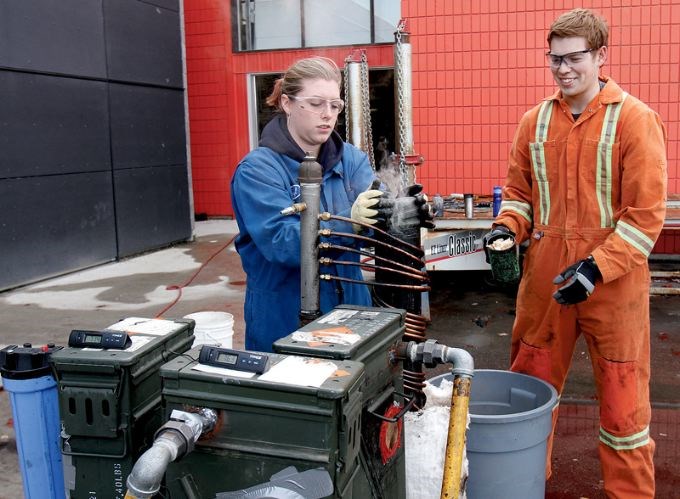The College of New Caledonia is collaborating with Purden Lake and Ski Resorts Ltd. to find ways to reduce the resort's dependence on diesel fuel to generate its power needs.
Inspiration for the project grew out of instructor Byron Poppleton's longtime interest in exploring alternative energy sources.
He teaches power engineering in CNC's school of trades and technologies. This fall, students in his fourth-class power engineering course will help conduct research on energy efficient and carbon-neutral fuel sources.
The goal will be to find an efficient means of using wood and other dry organic materials like corn cobs, nut shells, willow branches, wood chips and sawdust to generate a gas mixture which can be combusted in an internal combustion engine to generate power.
"This has been a personal interest of mine," Poppleton said. "Gasification is happening more on a commercial level now and there are examples of where biomass gasification is working well. UNBC heats its buildings mainly with wood as the heat source. Gases are driven off during burning and then fired in a separate boiler."
He is building the equipment himself and has assembled a group to work with him.
"The actual furnace needs to be custom built using a team of fabricators," Poppleton said. "We expect 2,000 to 3,000 watts will be produced. That is enough to supply power needs for two households as long as it is running."
An average house uses about 1,500 watts per hour every day.
Currently, the most common method of generating electricity with wood is to burn it inside a large boiler, which produces steam and generates electricity using turbines.
This is a very efficient way to generate large amounts of electricity, but does not scale down well because highly skilled power engineers are required to run the boiler.
The simplicity of gasification, which is generating combustible gas from wood and using the gas directly in an internal combustion engine to produce electricity, is something anyone can operate.
In Prince George, the University of Northern B.C. heats its buildings using mainly wood waste as the heat source. Gases are driven off during burning and then fired in a separate boiler.
The City of Prince George also has ongoing interest in developing a similar system to heat city hall and some other civic-owned downtown facilities.



